Want to look younger and feel younger at any age? Yep, women have many of the same wellbeing wants – more energy and sleep, fewer coughs and colds – oh, and it might be nice if our skin behaved, too. But the causes and solutions can vary depending on your life stage…
ALSO SEE: Expert ways to maximise your well-being
How to look younger and feel younger at any age
In your 30s
Want to look younger in your 30s? Well, by the age of 30, many women have children, meaning a lot of us spend the decade juggling a young family with a career. “And hormonal imbalances often show up in our thirties, which can affect skin particularly,” says skincare expert Dr Terry Loong.
For immunity
To look younger, you want to feel stronger too. Practise Saucha. Kids pick up twice as many colds as adults do, exposing you to them, too. Combine that with immune-sapping stress and it’s a recipe for sniffles. Saucha is a yogic idea that fights both problems, says Carol Krucoff, author of Yoga Sparks: 108 Easy Practices for Stress Relief in a Minute or Less.
To do it, simply soap your hands and rub them for 20 seconds and, while doing that, repeat a calming mantra or focus on your breathing. Try it six times a day and you’ll create a few moments of stillness – and fight those dreaded bugs – all in one.
For energy
Sprinkle spirulina. Iron is one of the most common nutrient deficiencies for women in their thirties – and low iron causes low energy and tiredness. A great way to naturally increase iron levels is by taking Superfoods’ Organic Spirulina, which comes in powder or tablet form and provides up to 40 times more iron than spinach. Try Organic Spirulina Tablets, R156.
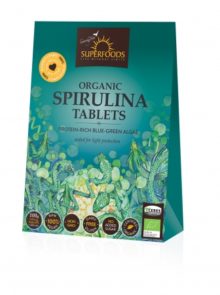
ALSO SEE: 7 Superfoods You Should Be Eating
Try cycling
No, we’re not talking about getting on your bike. Instead, it’s Dr Loong’s recommendation to tackle the havoc hormonal imbalances can create by tailoring your needs to your menstrual cycle. “The skin does alter week by week,” she explains. Try this regime:
Week 1
Dry phase – use hydrating products.
Week 2
Skin improving – focus on renewing/exfoliation.
Week 3
Building – collagen production is strongest now; use skin-boosting products like Skin Creamery Facial Hydrating Oil, R295 for 30ml.

Week 4
Oily/breakout phase – don’t over-cleanse or moisturise.
In your 40s
Called “the sandwich generation”, as you try to fit your needs between those of a career, a growing family, and ageing parents. Stress can take its toll now. And, the run-up to menopause can bring with it some of its own issues.
ALSO SEE: Natural Ways to help you through menopause
For immunity
Revive your sex life. Sex is an immunity stimulant – a study at Wilkes University found that frequent sex can switch on immunity genes – but with juggling all the above, it can go off the menu. Passion Fruit aims to bring it back, by delivering erotic items to your home, as part of its online service. For couples, gift boxes include a range of items for men and women.
For energy
Swap your Q10. You may already know the antioxidant co-enzyme Q10 is good for cellular growth – what you might not know is that the type you need changes as you age. “Most Q10 supplements contain ubiquinone, which our body then converts to a form called ubiquinol,” explains pharmacist Shabir Daya. “But, past 40, the levels of enzymes we need to do this decline rapidly, so it’s better to try one of the products that contain ubiquinol itself.” Try Biogen Ubiquinol Co-Q10, R299 for 60 capsules
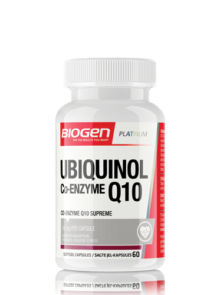
For skin
Take astaxanthin. This antioxidant is not only making news for its health-boosting effects (better brain ageing, heart health and improved energy), it also boosts skin. “It’s been shown to normalise sebum production, which can be erratic now, and acts almost as scaffolding to the skin, fighting ageing,” says nutritionist Miguel Toribio-Mateas.
In younger skin, collagen and elastin fibres support the skin’s layers like scaffolding poles, but as we get older this effect declines. “Astaxanthin can get in-between the skin’s layers and plump them back up,” says Miguel. Try Solgar’s Astaxanthin 5mg, R240 for 30 softgel capsules
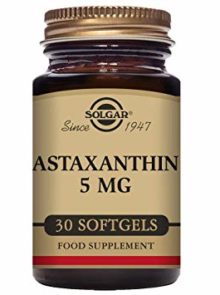
ALSO SEE: 12 Easy Steps to Flawless Skin, Eyes, Lips and Nails
For sleep
Try drinking vinegar. Research from the University of Pennsylvania has shown our 40s are the time we’re most prone to suffer sleep disturbance – one potential reason is alcohol. Forty-somethings are extremely likely to wind down via wine.
ALSO SEE: Top tips and tricks to sleep better
In your 50s and beyond
From our 50s, hormones become less important. Instead, our main issue can be a body that just doesn’t perform as it once did. And we don’t just mean in obvious ways like aches and pains – internally, the body can also slow down, triggering health issues like vitamin deficiencies or constipation.
For immunity
Eat some ‘super’ mushrooms. If you have low levels of vitamin D, the chance of picking up flu doubles – but, past 50, our ability to convert vitamin D from sunlight declines. Try Viridian Organic Vitamin D, R304 for 60 capsules, the vitamin content is extracted from organic mushrooms exposed to UV light while grown, making them rich in vitamin D.
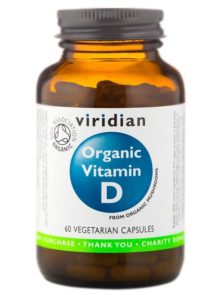
For energy
Mix a thera-smoothie. “Some people, as they get older, can experience digestive problems. A sluggish digestion can often leave us feeling tired and bloated,” says nutritionist Christine Bailey. Psyllium can help to regulate you, so pop a few capsules with this fibre for a digestive boost. Try Easihealth Colon Capsules, R165 for 60.
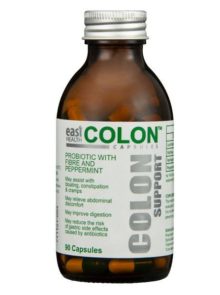
For skin
Get into AHAs. Most of us focus only on wrinkles, but experts say tackling overall skin texture is the key to a youthful look. “Texture changes often accelerate once oestrogen levels in the skin decline, as oestrogen is involved with cell turnover,” says Dr Anita Sturnham. Try products that contain mild AHAs, which gently exfoliate and smooth the skin, like Clarins Gentle Peeling Smooth Away Cream, R435 for 50ml.
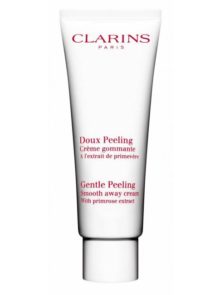
For sleep
Use the power of placebo. Here’s some good news, according to research at the University of Pennsylvania – the older you are, the better you feel you sleep. Use this positive attitude if a bad night does hit via “placebo sleeping”. You simply tell your body you got enough sleep. In research at Colorado College, those who felt they had had a good night’s sleep (but hadn’t) performed as well as those who had!
ALSO SEE: Hydration Tips For Your Skin While You Sleep
W&h tip
The upper lip is one of the first areas to show signs of ageing, but a recent Belgian study proved that massaging the area does help plump up the skin. Place both thumbs under your upper lip, push your lip forward, while also pushing your thumbs against your gum. Hold for six seconds, repeat 10 times a day. In the trial, it took two months to show effects.

